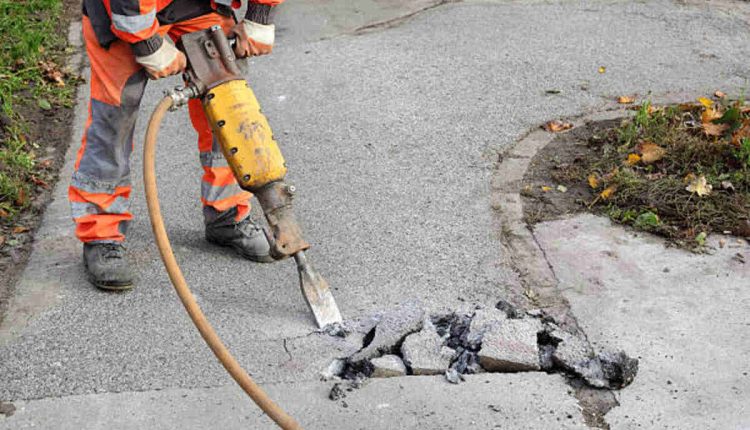Demolition of residential properties is a complex task requiring the use of specialized tools and equipment, not something best tackled alone in one weekend. For best results, it should be handled by professionals such as Llewellyn’s Construction Inc. Select the best Oxnard Demolition.
Before initiating the permit application process, check with your local municipality to see if any requirements must be fulfilled before you can receive one. These may include grading plans or tree preservation inspections.
Permits and Regulations
Before undertaking your demolition project, it is wise to secure all necessary permits and regulations. These may include a demolition permit and erosion control plan as well as tree preservation inspection permits and inspection services if applicable – most municipalities have specific rules for these services, so be sure to get these details confirmed with them prior to beginning work.
Demolition permits are typically issued only for structures that have either 1) been altered to such an extent as to constitute a significant change in their certificate of occupancy (for instance, converting commercial space to residential use or vice versa) or (2) are part of a program of clearance, replanning, reconstruction and neighborhood rehabilitation of substandard and unsanitary areas or parts thereof, prior to issuing such permits for demolition applications for review by the Planning Board.
At least seven days prior to demolition beginning, any structure slated for demolition must be secured with a 6′ high temporary chain link safety fence that measures no higher than six feet high and barricaded with all doors and windows closed/locked shut.
At the outset of any demolition work, an applicant must post either a cash demolition bond or an irrevocable letter of credit sample for 10% over the value of their demolition, with it to be filed with the code enforcement officer upon beginning operations. Periodic site inspections by code enforcement officers will occur during each stage, and work may be suspended at any point if not conducted safely and in compliance with local codes and standards.
Notifying Your Neighbors
Many people do not mind noise and dust from construction work if they know when it is coming, which is why it is best to notify neighbors early of any potentially loud demolition work taking place near them. That way, they can plan for disruptions as needed while also raising any concerns with the demolition contractor so their needs can be addressed appropriately.
Always inform your neighbors of when and for how long the work will commence, mainly if it occurs over school holiday periods when children may be present more frequently. Also, please provide them with your contact info should any issues arise that require further discussion.
Not only should you notify your neighbors and utility providers, but you should also reach out to any appropriate utility providers—such as water, electricity, and gas services—so that all services can be properly disconnected before starting demolition work. In an HOA-governed community, be sure to notify them, as they typically have rules about dumpsters and trash collection that need to be observed as part of this process.
Large-scale residential demolitions often necessitate the relocation of residents. If this is the case for your project, be sure to discuss relocation procedures with your local government and any assistance that might be available. Environmental justice refers to treating individuals equally regardless of race, income, or any other characteristics when applying environmental laws and regulations.
Contacting Your Lender
Residential demolitions are an essential step in the construction process, enabling old structures to be transformed into more energy-efficient dwellings. But before beginning the demolition process, there are a few basic things you should remember.
As soon as your plans become concrete, be sure to notify your mortgage lender immediately. Failure to do so could breach the loan contract and have serious repercussions; for instance, they can seize any assets you own that exceed what’s still owed on the loan.
An additional priority when undertaking home demolition is adhering to all local rules and regulations regarding it, which could include inspections and the acquisition of permits. To ensure compliance, work with an experienced contractor from your region who understands all applicable regulations.
Adhering to all safety protocols is crucial, as is disconnecting any services affected by demolition, such as water, gas, and electricity, prior to beginning demolition work. A reliable contractor can assist in this regard and help ensure that utilities are turned off. Doing this can prevent injuries or property damage during this process and allow proper fencing around your property for safety until demolition has been completed.
Finding a Contractor
Home demolition is a complex, meticulous task requiring certified professionals. It requires careful planning and precision to avoid damaging nearby structures while adhering to strict environmental guidelines.
Before commencing demolition, be sure to disconnect all water, electrical, and gas lines. This step ensures safety by eliminating costly cleanup or property damage costs; additionally, it’s wise to protect nearby buildings with fencing.
When searching for a contractor, consider how long they have been in business, what their insurance coverage includes, whether or not they will obtain all required permits for your demolition project, and if possible, ask previous clients for references.
Finding a reputable demolition contractor can save time, money, and hassles. They’ll help you figure out the type of demolition best suited to your home and provide a precise estimate and timeline. Furthermore, they’ll outline any steps required for prepping the site for demolition, including removing windows, doors, utilities, and safety measures that must be taken beforehand.
Demolition companies can also help you obtain a building permit for your home. Many have established relationships with local building departments to expedite this process and may even assist in finding financing solutions for demolition and rebuilding projects.










